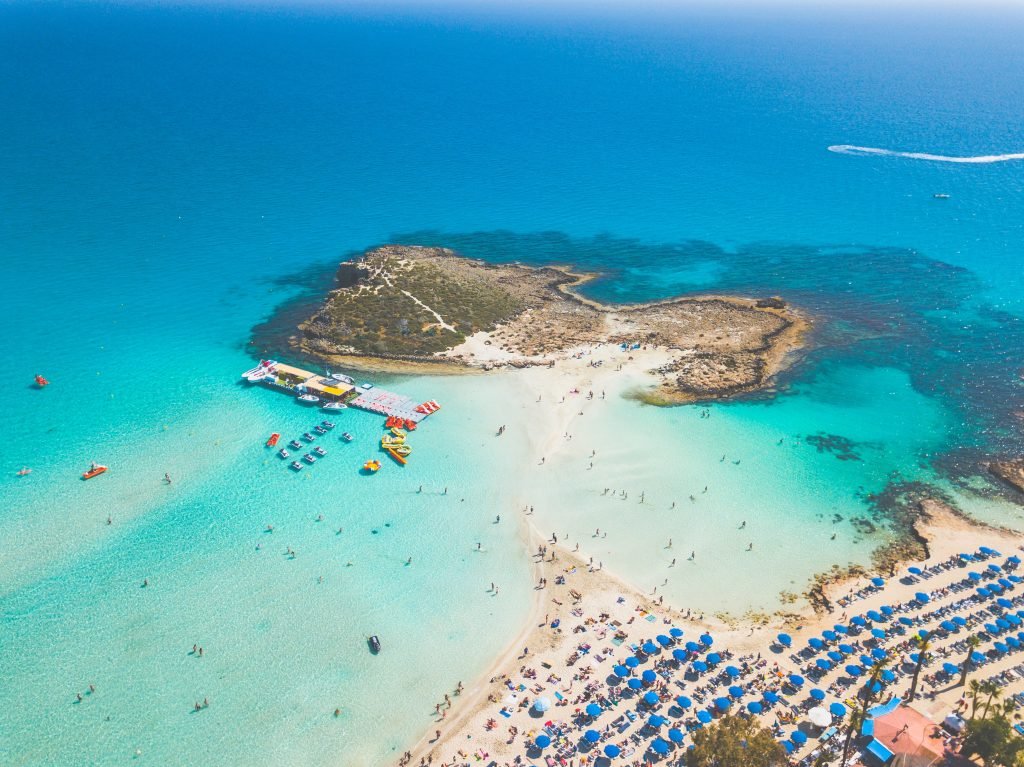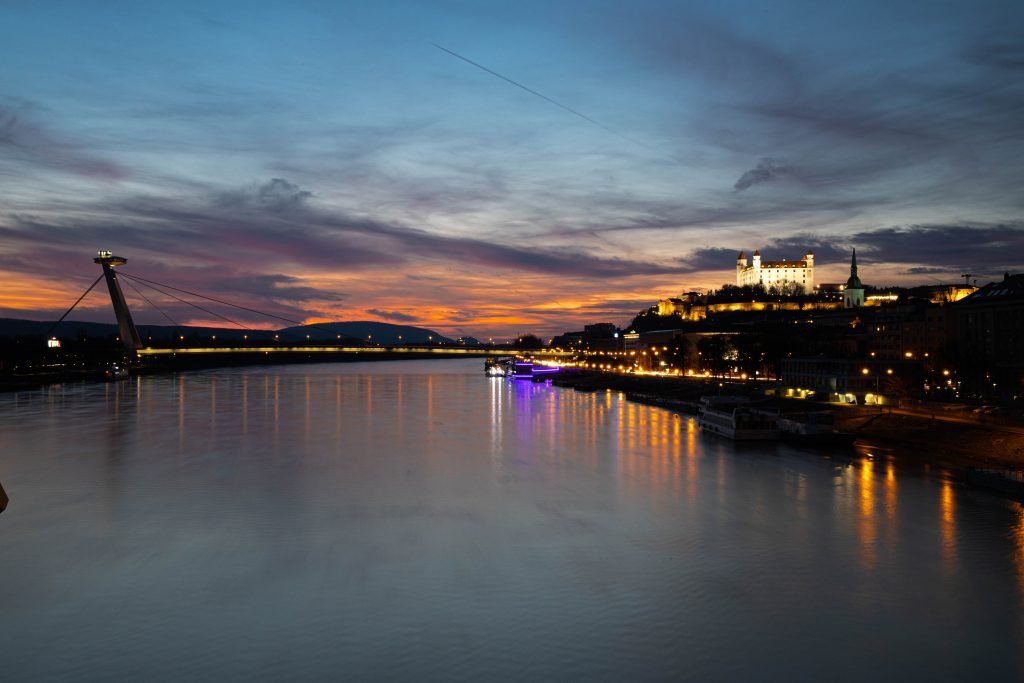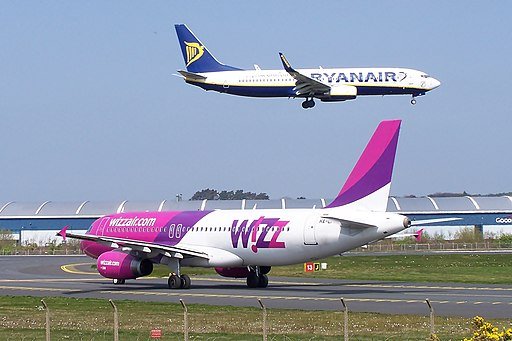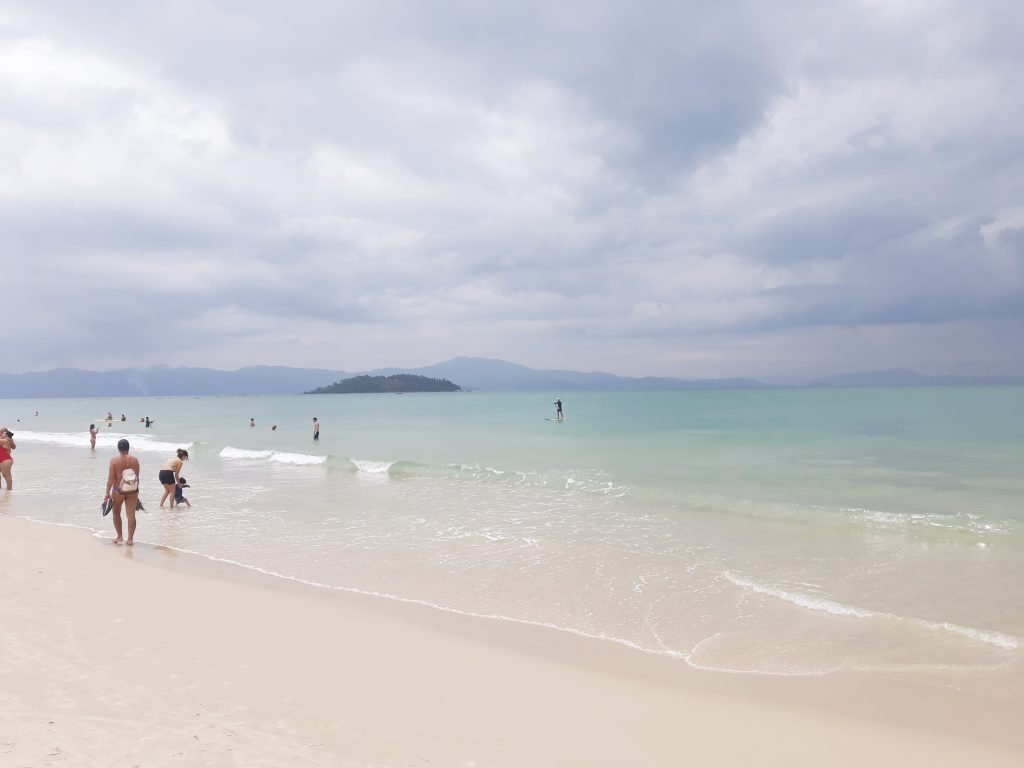While many countries initially closed their borders, most nations have now lifted travel restrictions and reopened for international tourism. Specific entry requirements, such as medical certificates or quarantine protocols, vary significantly by destination, so travelers should verify current guidelines before planning their trips.
Which countries have already lifted their international travel bans?
After our previous article, about the new normal of international traveling, there was still a doubt (which appeared among some followers of my facebook page) about travel restrictions update:
Allright, travel corridors (or bubbles) are being established across the planet, but what about the other countries? When my next destionation will open borders?
So we decided to compile a list of the main destinations and their status regarding international travel restrictions update. If there is a place that you would like to know, just write it at the comment section and we at Colligere Expat Consultancy will seek information about it. In addition to travel restrictions, we can also provide insights into temporary residence visa options in Europe, which may be essential for those planning an extended stay. Understanding these options can help streamline your travel plans and ensure compliance with local regulations. Feel free to ask about specific countries or programs you might be interested in!
If you are planning to travel after the travel restrictions lifted, check first this book!
Last Update: 03/06/2020

What are the current travel restrictions for each country?
| Border Status | Example Countries | General Entry Rules |
|---|---|---|
| Closed Borders | Argentina, Australia, Brazil, India, USA | Foreign travelers and non-residents are generally banned from entering to prevent spread. |
| Partial Reopening (Travel Bubbles) | Cyprus, Estonia, Germany, Greece | Borders are reopening selectively to neighboring countries or designated safe zones. |
| Easing Restrictions | Czech Republic, Italy, Spain, Mexico | Gradually lifting quarantine requirements or preparing to open up for the upcoming tourism season. |
- Argentina: Argentina’s borders are closed to foreign nationals and non-residents entering the country. Ski resorts like Las Lenas already announced that may not open for the winter season.
- Australia: All foreign travellers are banned.
- Austria: Anyone entering Austria from Germany, Hungary, Italy, Liechtenstein, Slovenia or Switzerland, or has in the last 14 days been in an area with travel warnings from the Austrian Foreign Ministry must present a medical certificate no older than 4 days.
- Belarus: Arrivals from countries affected by coronavirus must self-isolate for 14 days, regardless of symptoms.
- Belgium: You will only be able to enter Belgium if you live there or if you work there. The government has announced plans to gradually reduce restrictions and reopen borders.
- Brazil: The Brazilian Government have banned entry for all foreign passengers.
- Bulgaria: The Bulgarian Government has announced severe restrictions on international travel, forbidding various nationalities.
- Canada: Canada has closed its borders to most foreign visitors.The border between the US and Canada is also closed except for essential journeys.
- Colombia: Borders closed, including with Ecuador, and airports closed to international traffic.
- Croatia: Croatia has reopened border crossings on major routes for limited people, including foreign nationals who have real estate in the country, who own a boat in the country, have close family in Croatia or invited for business purposes.
- Czech Republic: EU citizens making business trips of three days or less can enter the Czech Republic. They need to have evidence that they have tested negatively for Covid-19. In the last week of May they entered the final phase of easing restrictions and now pubs, restaurants, hotels and museums are reopening their doors.
- Cyprus: While travel restrictions are still enforced for foreign tourists, the government is advancing on plans of easing them, together with Greece and Israel. Cyprus is so keen to get its tourism industry back on track that they are offering to cover the costs of any travelers who test positive for Covid-19 while on vacation in the island. Flights from Greece, Malta, Bulgaria, Norway, Austria, Finland, Slovenia, Hungary, Israel, Denmark, Germany, Slovakia and Lithuania will return first, with Switzerland, Poland, Romania, Croatia, Estonia and the Czech Republic also to be back in June. UK is absent of the list.
- Denmark: Travel restrictions still applied, but advanced plans to reopen the border with Germany.
- Georgia: Domestic tourism will re-open on 15 June. From 1 July Georgia’s land and air borders should re-open in line with the principle of safe corridors. There will be a gradual resumption of flights and international tourism.
- Germany: The Austria/Germany land border is reopening — travel between Austria and Germany will come back from June 15 — and restrictions around the country are being relaxed. Bars are still closed but hotels are permitted to open again since May 29.
- Greece: Together with Cyprus, Greece is gradually beginning to ease its lockdown restrictions and is hoping to be open to tourists by 15 July. Citizens are now able to take ferry’s to Greece’s Aegean islands as the country started its summer holiday season three weeks earlier than expected.
- Egypt: All international flights are suspended.
- Estonia: Only citizens of Estonia, holders of an Estonian Residency Permit or foreign citizens whose family member lives in Estonia are permitted to enter Estonia. Plans to reopen borders with other Baltic countries.
- Iceland: The Icelandic Government intends to ease restrictions on international arrivals by 15 June at the latest. Details have not yet been finalised, but it is expected that arrivals will have the choice between a test on arrival or two weeks self-isolation.
- India: All scheduled international and domestic commercial passenger services will remain suspended until at least 31st May. India has also now made the decision to close the Taj Mahal. All foreign nationals are barred from entering and transiting through Indonesia.
- Indonesia: Tourism officials have been calling for a“travel bubble” to be implemented between Bali and Australia.
- Ireland: Flights and ferry services continue to operate between Ireland and Great Britain but at a reduced service. New visitors will have to self-quarantine for 14 days.
- Italy: Italy has announced it will reopen for travel on 1 June. St. Peter’s Basilica in the Vatican reopened on May 18 after closing for over two months
- Israel: Foreign nationals are not permitted to enter unless they are citizens or residents of Israel.
- Japan: Foreign visitors who have visited affected countries are not allowed to enter Japan. State of emergency is lifted from 25 of May onwards.
- Finland: Will reopen its borders for foreign workers from the Schengen zone from May 14. Was closed since March 19, due to the Coronavirus developments. From June 1, cafés, restaurants and bars will resume their normal work, but with certain limitations that are still being worked out.
- France: The French Minister of Interior has agreed with his German counterpart Interior Minister Horst Seehofer to reopen the common borders by June 15. It was announced on May 29 that the country’s most visited museum, the Louvre, will reopen July 6.
- Hungary: Hungary and Slovenia have agreed on a road map towards a gradual reopening of their border by June 1. Hungary started lifting coronavirus restrictions in Budapest from Monday. Residents returning to shops or travelling on public transport will have to wear face masks.
- Lithuania: While travel restrictions still on place, there are plans to Lithuania reopen its borders with other Baltic countries in the coming months. Starting from May 15 2020, nationals of Estonia and Latvia will also be allowed to enter the country
- Mexico: On 20th April, the Mexican government confirmed that the land border between the US and Mexico will remain closed to all non-essential traffic for a further 30 days. On May, border restrictions got extended due to the increasing number of Covid19 cases. Marisol Vanegas, the state’s tourism secretary, said that We want to revive tourism and expect to start opening sights and hotels sometime between June 10 and 15 but don’t know which ones yet.
- Netherlands: Netherland’s government has decided to prolong the entry ban for non-EU citizens, the United Kingdom and the Schengen Area until June 15 due to the Coronavirus (COVID-19) developments, the Ministry of Justice and Security announced.
- Norway: Norwegian authorities have decided to prolong internal border controls for another 90 days, from May 16. This is part of the country’s efforts to stop the further spread of the Coronavirus outbreak (COVID-19), according to the Ministry of Justice.
- Poland: Poland’s borders remain closed for now, but authorities have announced plans to start to re-open to tourists, with new policy measures for visitors and organisations within the tourism sector ahead of expected border openings.
- Portugal: There are strict measures in place and there are significant restrictions on movement within the country. The land borders between Portugal and Spain will remain closed until 15 June due to the covid-19 pandemic, according to a resolution by the Councils of Ministers.
- Russia: On the 16th March, Russia announced that it will restrict entry into the whole country for almost all foreign citizens from 18 March until further notice.
- South Korea: All foreign national travellers are being tested for COVID-19 on arrival in South Korea. Testing may take up to 24 hours and you may be held in a separate facility during this time. If you test positive for the virus you will be transferred to the appropriate healthcare facility.
- Spain: Closed borders to all except citizens and those with a Spanish residency. Spain has announced it hopes to reopen to tourism in June.Restaurants and bars in Spain’s biggest cities, including Barcelona and capital Madrid, reopened on 25 of May. From July 1, the they will allow EU travelers to enter without having to quarantine for 14 days.
- Slovakia: Travel restrictions still in place, but talks with Austria and Czech Republic to reopen land borders by June.
- Slovenia: Airports in Slovenia have now re-opened for passenger transportation. According to the newly adopted changes, borders will be crossable at several checkpoints on-road connections with Austria, Italy and Hungary..
Thailand: Barred all foreign nationals and international passenger flights to Thailand are suspended. Thailand’s borders are expected to remain closed to foreigners until at least the end of June. The ban on International Commercial Flights – excluding repatriation flights — was extended until June 30, but some resorts and hotels have already been given the go ahead to reopen — Hua Hin, located about 200 kilometers (124 miles) of Bangkok, is one of them - Turkey: Passengers who are not Turkish nationals or residents of Turkey are not permitted to enter Turkey. Istanbul’s Grand Bazaar, one of the world’s largest markets, is open again, for the first time in two months, since June 1.
- USA: General travel ban, although some states like Texas eased its own restrictions. As of Monday 16 March, European travellers are denied entry into the USA. Travel ban to and from South-American countries like Brazil are a possibility in the coming weeks.

If you found any mistake or would like to add any country at this list, please write it at the comments. We will be grateful!
Author: Levi Borba, founder of Colligere Expat Consultancy, former RM specialist for the world´s greatest airline. Co-founder of Nearby Airport Hostel Warsaw and author of the book Moving Out, Living Abroad and Keeping Your Sanity.





Pretty nice post. I just stumbled upon your post and wished to say that I’ve really enjoyed reading your blog post. After all I’ll be subscribing to your rss feed and I hope you write again soon!
Pretty cool post. I stumbled upon your article and wished to say that I’ve really enjoyed browsing your article. After all I’ll be subscribing to your rss feed and I hope you write again soon!
Do you wish to start travelling, but aren’t certain how to start? Nicely, look no further, this information is full of recommendations which can help you are making the best choices on the kind of spots you want to go to. Check out this post to see what details applies to you. When traveling, make sure you use free installing clothing and fall-on shoes or boots. This will be sure that your airline flight is comfortable. Not only that, it won’t take as long to get through safety provided you can rapidly get your shoes on and off. Loosened clothes will allow for almost any temporary puffiness that you may possibly expertise on account of atmosphere stress from the plane’s cabin. There are some basics everyone should have whenever they’re travelling. No matter where you’re going, ensure that you provide your image ID, if possible in several develop, any medicine that you just commonly or infrequently need, and a tiny amount of cash. All of us have their very own personalized requires, so think about what your own property are prior to deciding to traveling. Keeping calm and accumulated on board your airline will help you avoid an important breeding floor for traveling pressure. Situations are crowded and unpleasant, most flights are uninteresting, and everyone is eager to have the challenge around with. The best way to keep these tension factors from getting to you is to pay attention to the truth that they can be inevitable. Once you ultimately arrive at your spot they will disappear do not obsess around them on the way there. When figuring out what to wear on your toes when you go on a aircraft trip, keep in mind that you will be most comfy in shoes or boots that slide away from easily. Crocs or turn flops would be best since they can be removed or put on instantly. To stay in health and well being, you need to go visit your doctor soon after touring in another country. Question your personal doctor to examine you for spectacular conditions to actually have not contracted nearly anything while abroad. If you happen to contracted something, you will get the help you need quickly and never pollute the folks near you. While you are vacationing with your laptop, provide an audio/graphic power cord along with you. Most lodges have great-velocity internet access and many in addition have a great High definition tv within their areas. In case you have an A/V cord, you are able to catch your laptop computer up to the TV, letting you source video tutorials or get pleasure from other on the internet content material coming from a big screen. For those who have a guidebook to assist you in your trips you can damage out of the sections you will be making use of and standard the web pages with each other. This can lighten the burden you might be transporting. While you are leaving a location you can depart the utilized parts associated with for other travellers to utilize. Ensure you double or perhaps triple verify all your reservations before you leave for the vacation. Just get in touch with the accommodations you are staying in or make certain nothing the situations you were considering going to got cancelled. You don’t want to be kept stranded without where you can continue to be or dissatisfied that your particular favored group isn’t going to engage in in the city you are likely to go to in order to obtain them stay. There’s nothing wrong with checking out your programs to your vacation. Preparation your trip needs to be reasonably easy should you try this advice. You will be able to find great deals and not forget about anything at all. Preparation is wonderful, but remember your journey ought to be about entertaining and venture as well. Be sure your journey continues to be an exciting practical experience that you will keep in mind.
Many thanks for sharing!
Interesting take on the topic. I agree with you completely